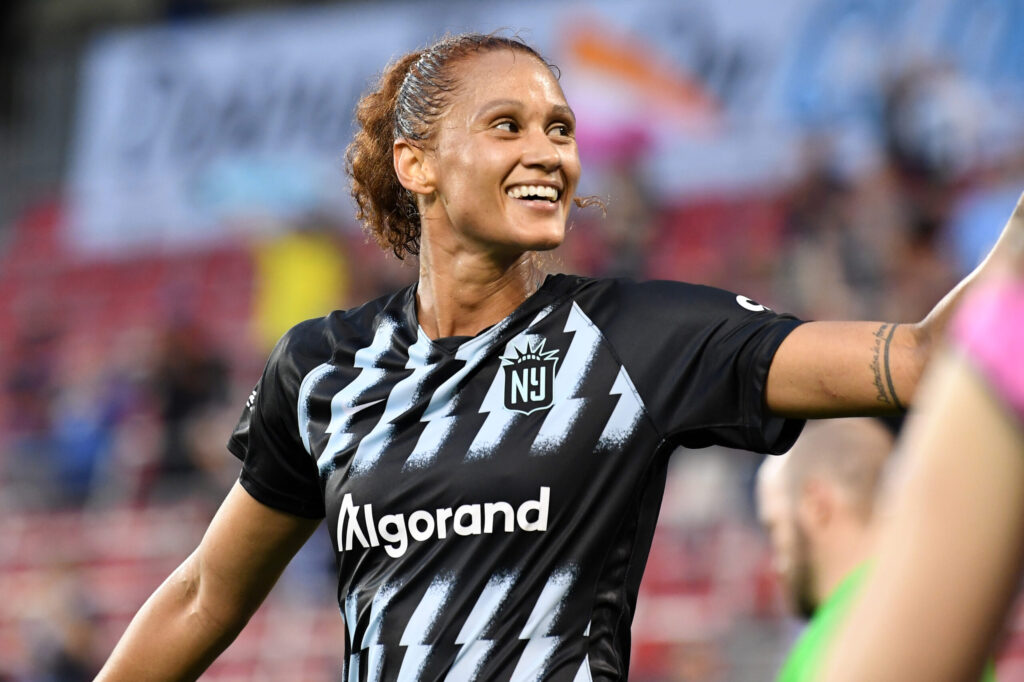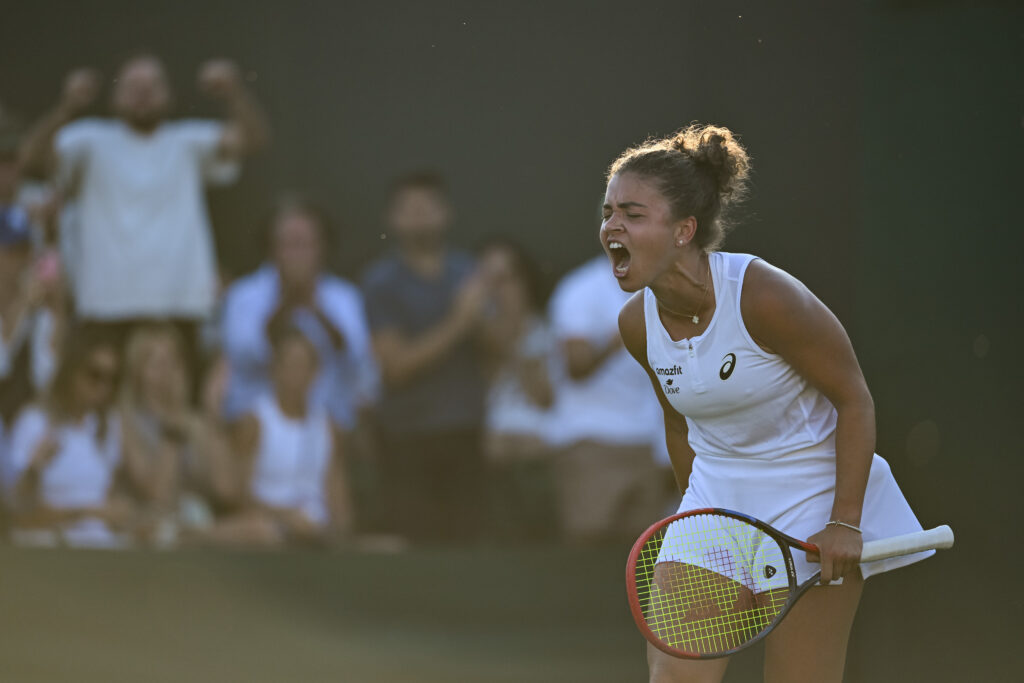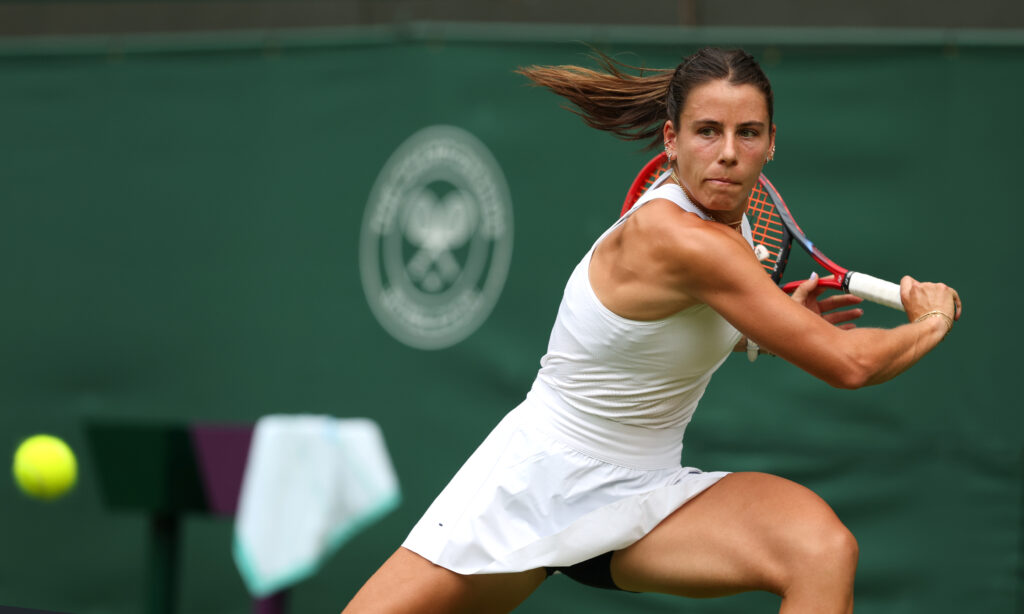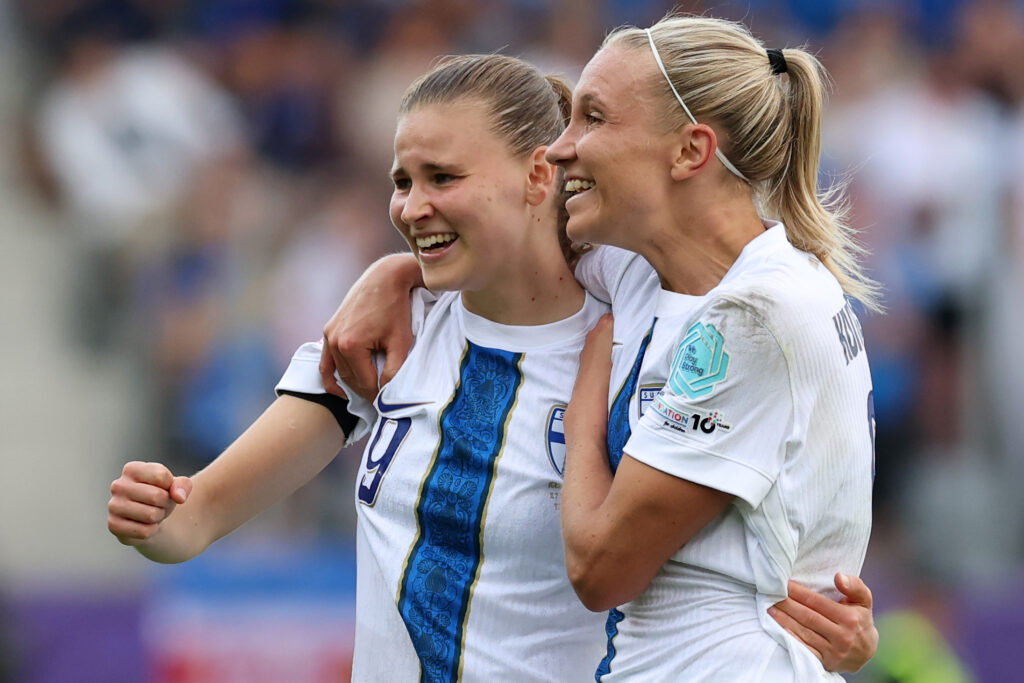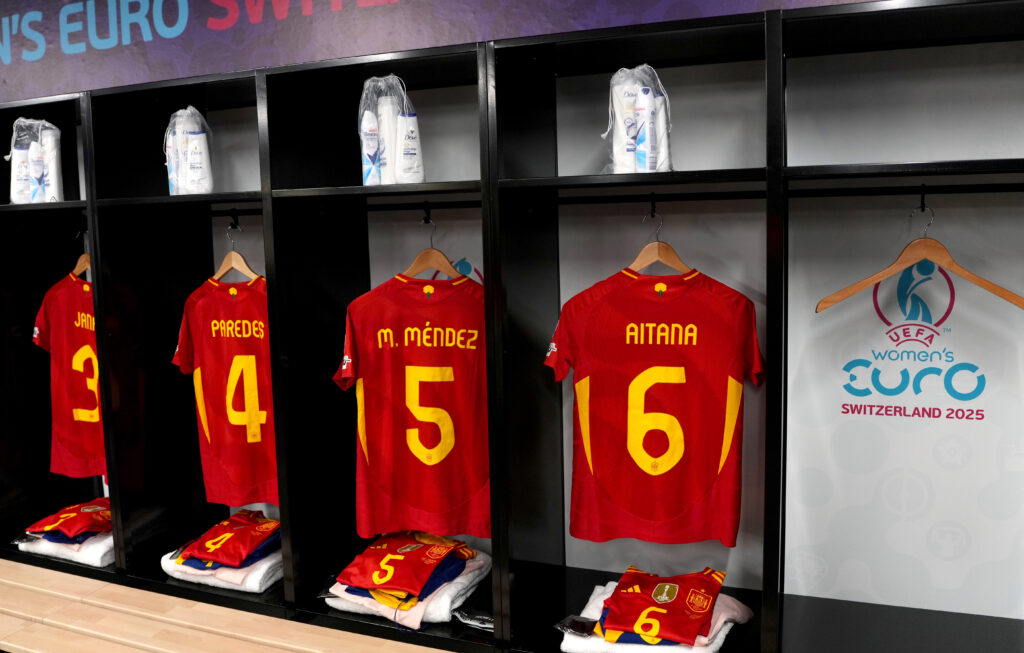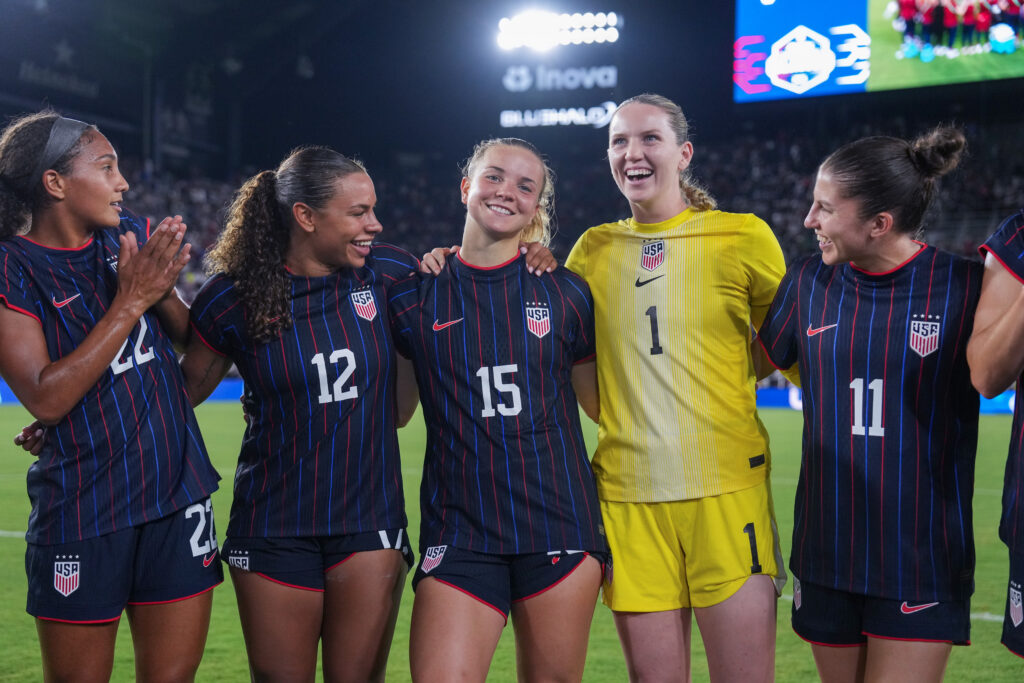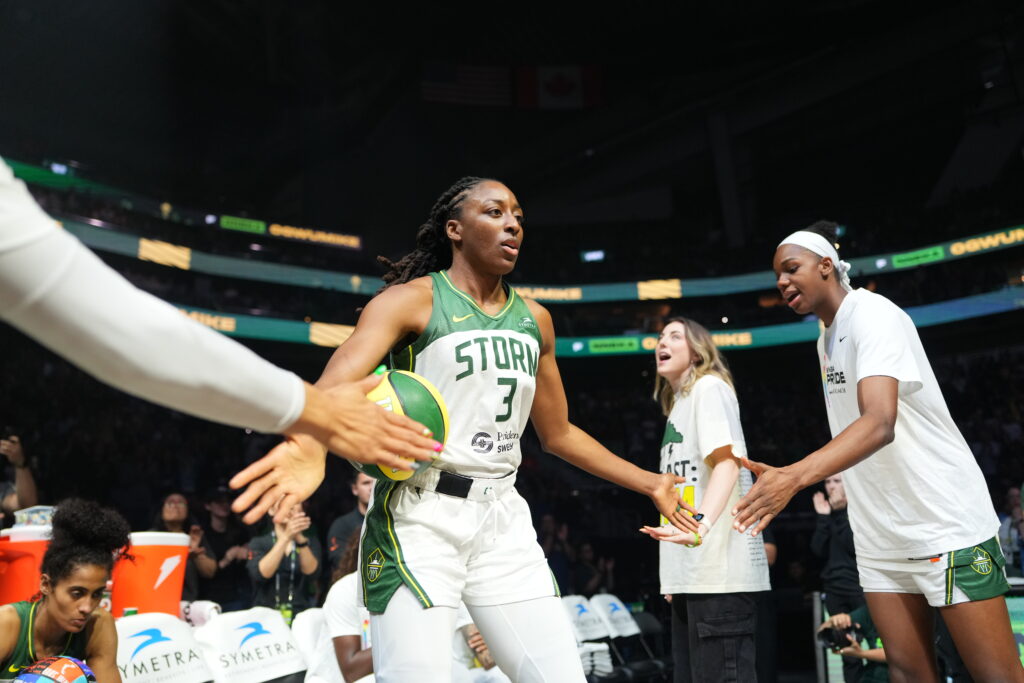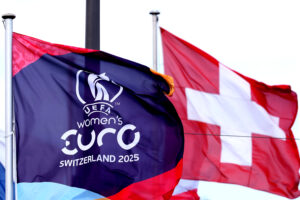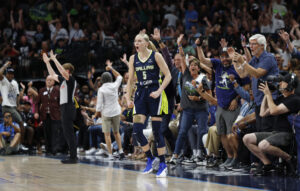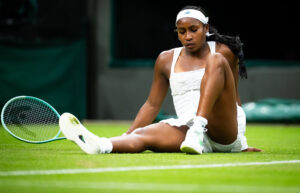Sam Mewis and Lynn Williams expressed their confusion over the NWSL’s reported decision to cancel its Challenge Cup tournament on the latest episode of their “Snacks” podcast.
The Challenge Cup started in 2020 as a replacement for the regular season during the height of the COVID-19 pandemic. It continued in 2021 and 2022 as a preseason tournament, then in 2023 it ran concurrently with the regular season. But the NWSL plans to abandon the tournament, The Equalizer reported in August.
While NWSL commissioner Jessica Berman denied that any final decision had been made ahead of the 2023 Challenge Cup final, the future of the tournament remains a question mark. According to The Equalizer’s report, the league plans to host a match between the NWSL Shield and the NWSL Championship winners instead.
Yet for Mewis, the Challenge Cup finally had found its rhythm in 2023, with matches taking place midweek and during the month-long World Cup break. Mewis is a midfielder for the U.S. women’s national team and the Kansas City Current, but she has been sidelined with a knee injury for the last two seasons.
“I think players were really on board with the Challenge Cup this year, not only because of the prize money, but also because that concentration of games came during the World Cup when there were a lot of players missing from the league,” Mewis said. “So I feel like it kind of lent itself perfectly to the season’s ebbs and flows. And next year would have been another great opportunity to do that during the Olympics. So I am curious about why it’s leaving, just as I think people were really starting to come around to it.”
Challenge Cup partner UKG committed record prize money this year: $1 million total. Williams also pointed out the sudden rise of the tournament, which would make its absence all the more obvious.
“It just felt like it went so high so quickly, and then all of a sudden, it’s over,” she said. “Because even this year, there was so much talk around it because the prize money was a million dollars.”
While there were still challenges with the tournament, which had to work around regular season games in the first three months of the season, it helped players stay sharp during the long World Cup break, Williams pointed out.
“I think it also allowed players that wouldn’t necessarily get time in the regular season to show what they could do in this Challenge Cup,” she said. “And I think that on some teams, those players are now starting even though the World Cup players are back. So, I would also love to know the reasoning behind that. Is something else going to replace it or, like, what’s the deal there?”
